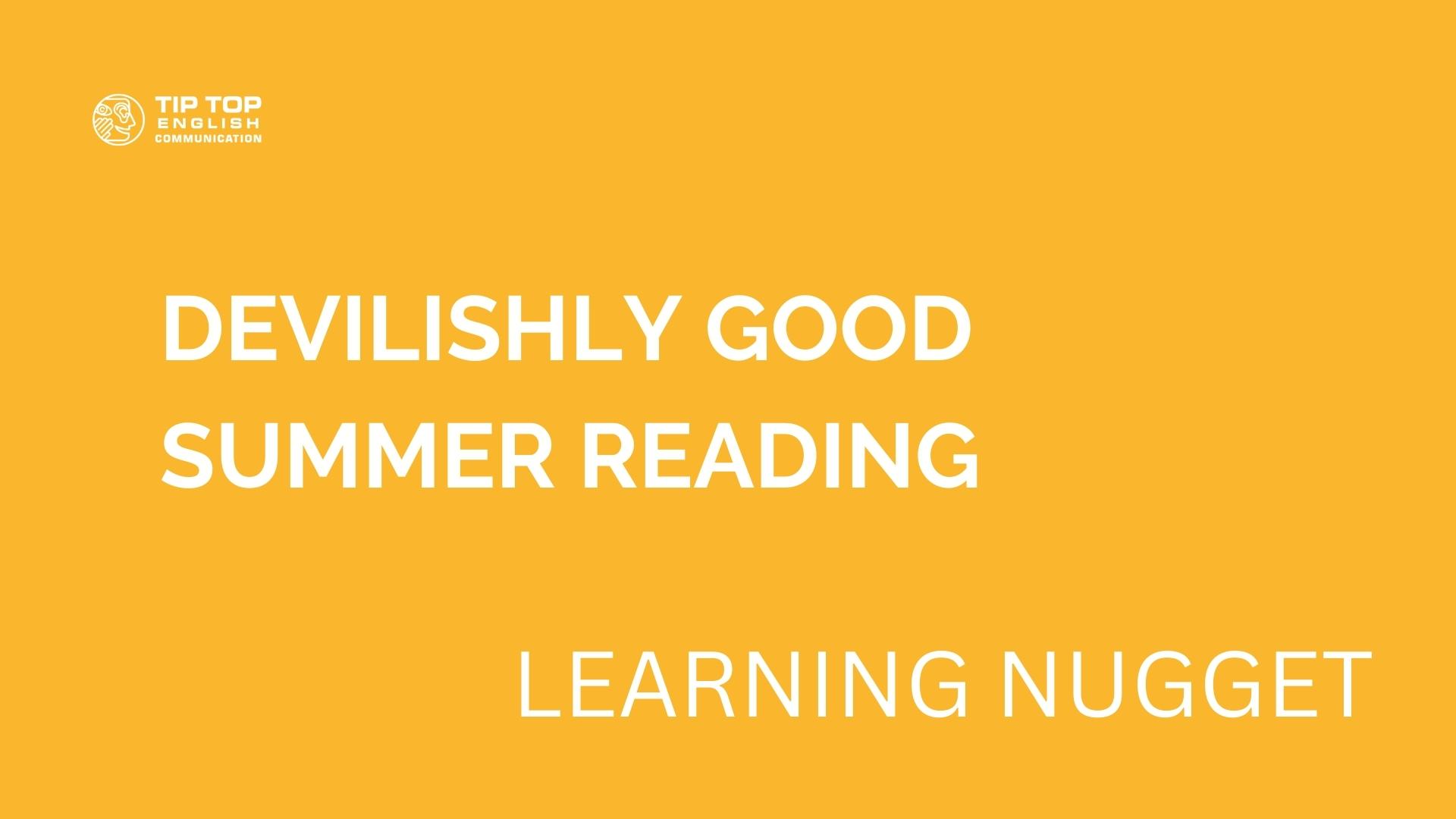Devilishly good summer reading
The world-famous author Salman Rushdie has won the Peace Prize of the German Book Trade, which he’ll accept in Frankfurt in October.
In this month’s Learning Nugget, you can learn more about this Indian-born, British-educated, naturalized U.S. citizen whose words have enchanted people around the globe while causing others to call for his death.
Who is Salman Rushdie?
Rushdie was born in 1947 to a wealthy, liberal Muslim family in Mumbai, India (then called Bombay), just a few months before India became independent from Britain.
Whether they were in books or told aloud, stories always fascinated Rushdie. Fantastic and magical tales like The 1,001 Arabian Nights and the mythologies of past and present religions were his favorites.
Rushdie was sent to a British boarding school as a teenager. Afterward, he earned an M.A. in history from King’s College at the University of Cambridge in England.
He didn’t find immediate success as a novelist and supported himself for many years by working in advertising. His breakout success in the literary world was 1981’s Midnight’s Children, which won the prestigious Booker Prize and launched his writing career into the stratosphere. He’s since won many awards and was knighted in 2007.
The Fatwa
Rushdie’s books have been read by millions, but a particular person’s reaction to his writing is probably more famous. In 1989, Iran’s then-spiritual leader Ayatollah Khomeini issued an Islamic ruling called a fatwa that said Rushdie’s book The Satanic Verses was heretical.
A large monetary reward was offered to anyone who killed Rushdie and those who helped him publish the book.
There were book burnings, book stores and translators were attacked (the Japanese translator was killed), Iran ended relations with the U.K., and Rushdie went into hiding. At one point, Rushdie even said the book should never have been published and that he opposed it coming out in paperback.
However, many in the West believed it was important to hold to the ideal of free speech in the face of the violence. Rushdie even said later that he regretted not defending his book and had only spoken against it in hopes of ending the attacks.
The fatwa is still in effect, but Rushdie – now in his mid-70s – has long since decided to live life in the open. He teaches, speaks at events and his book tours, and has a vibrant social life.
He believed the danger of the fatwa was past. But late last year he suffered a knife attack from someone inspired by it while on stage at an event in New York state. As a result, the author lost vision in one eye and the use of a hand. He has made public appearances since the attack, and he’s continued to defend free speech.
Some summer reading?
If you’re interested to find out why The Satanic Verses caused such an uproar, it might be worth picking up to read over the coming summer holidays. It’s not a simple text, so unless you’re at a very solid B2 in English or above, you may want to read it in German.
Another great reason to pick up a new book is that you’ll have a bit less to read next month as the Learning Nugget is taking its typical summer break in August. We hope everyone enjoys summer vacation season and you’ll hear from us again soon!
Vocabulary
devilishly good – teuflisch gut
Peace Prize –Friedenspreis
naturalized – eingebürgert
enchanted – verzaubert
causing – veranlassen
wealthy – wohlhabend
independent from – unabhängig von
tell aloud – laut vorlesen
magical tales – zauberhafte Geschichten
1,001 Arabian Nights –1000 und eine Nacht
boarding school – Internat
earned – verdiente, erwarb
novelist – Schriftsteller
supported – getragen, gestützt, unterstützt
breakout success – Durchbruchserfolg
launch sth. into stratosphere – etwas in die Stratosphäre katapultieren
writing career – Schriftstellerkarriere
knighted – zum Ritter geschlagen
heretical – ketzerisch
large monetary reward – hohe monetäre Belohnung
book burnings – Bücherverbrennungen
go into hiding – untertauchen
oppose sth. – sich widersetzen
free speech – freie Meinungsäußerung, Redefreiheit
in the face of – angesichts der
violence – Gewalt
regret sth. – etwas bedauern
defend – verteidigen
vibrant social life – dynamisches gesellschaftliches Leben
suffer a knife attack – eine Messerattacke erleiden
on stage – auf der Bühne
lose vision in one eye – Augenlicht auf einem Auge verlieren
appearances – Auftreten, Auftritte
uproar – Aufruhr
solid B2 – gutes B2 Level
Excite Your Senses

On our YouTube channel, you can follow along as a native speaker reads this month’s Learning Nugget accompanied by music and pictures.
